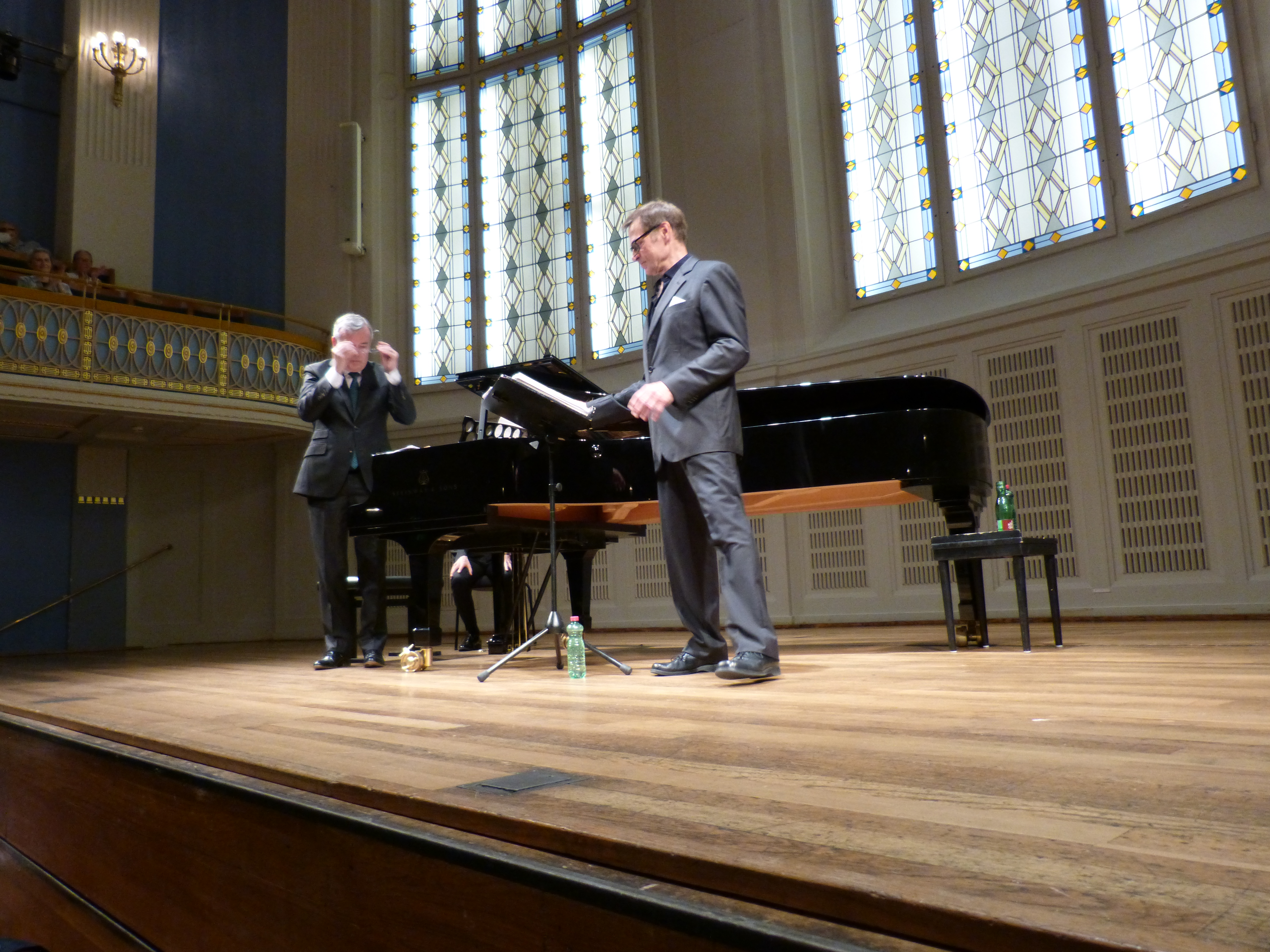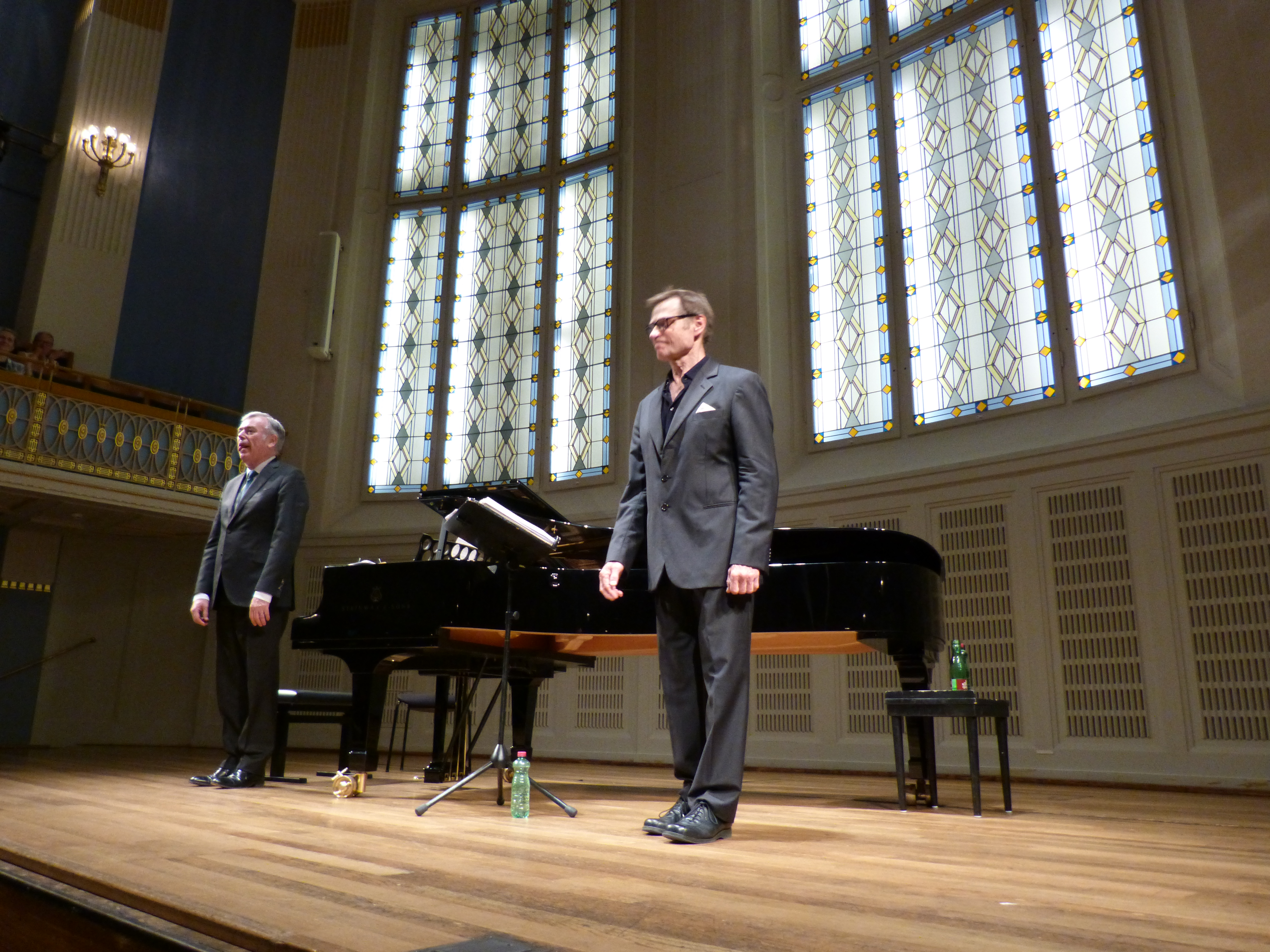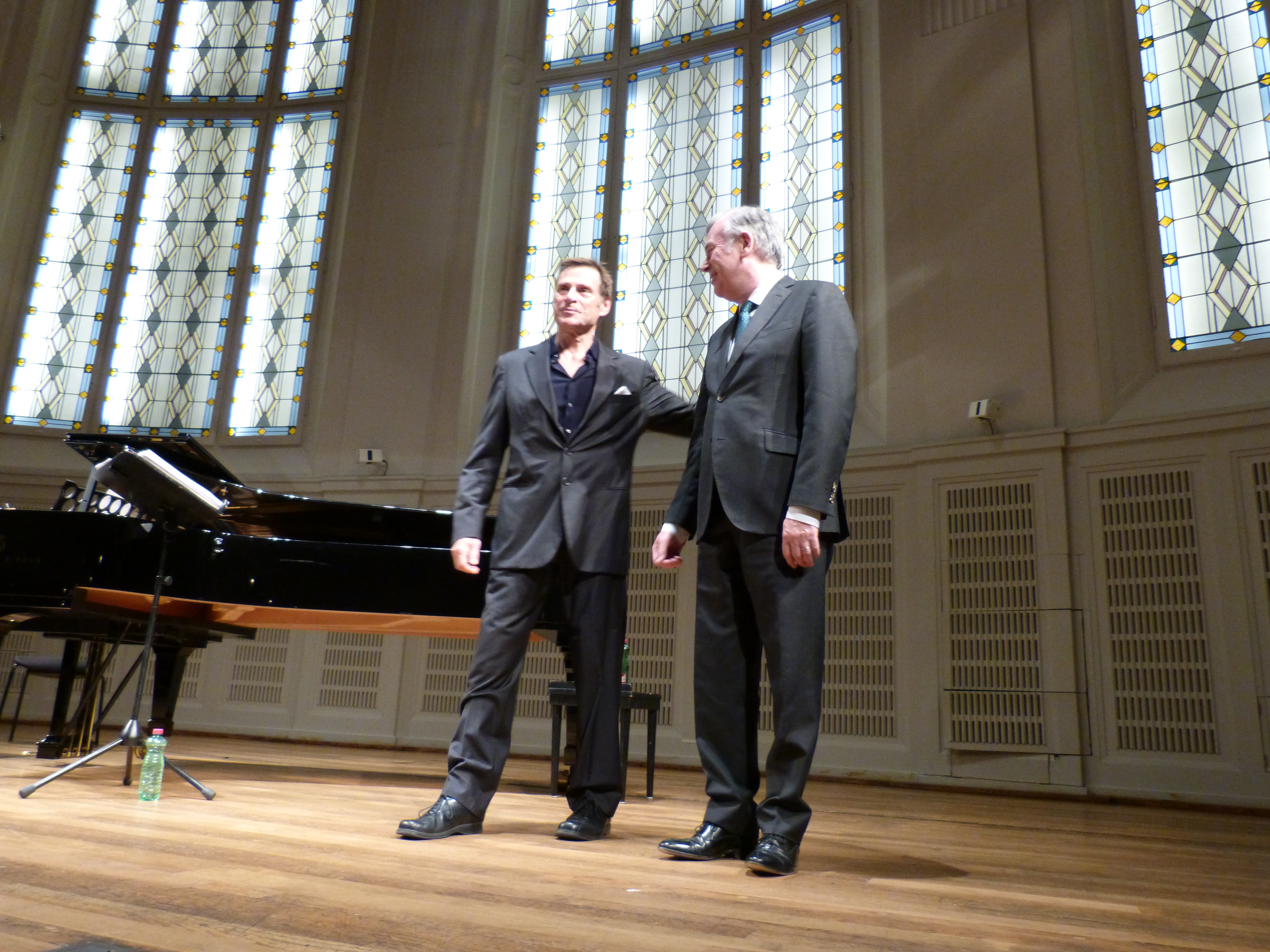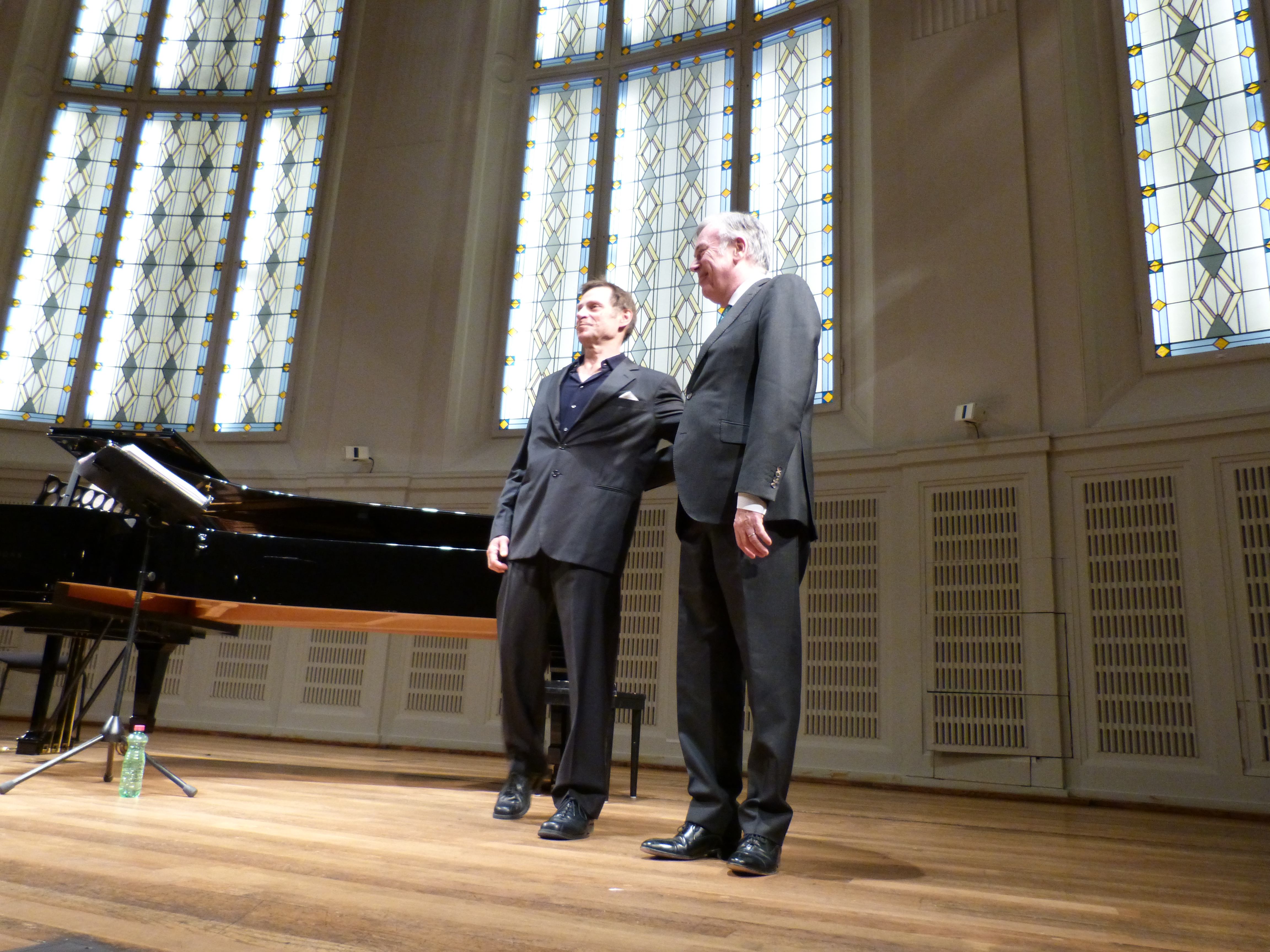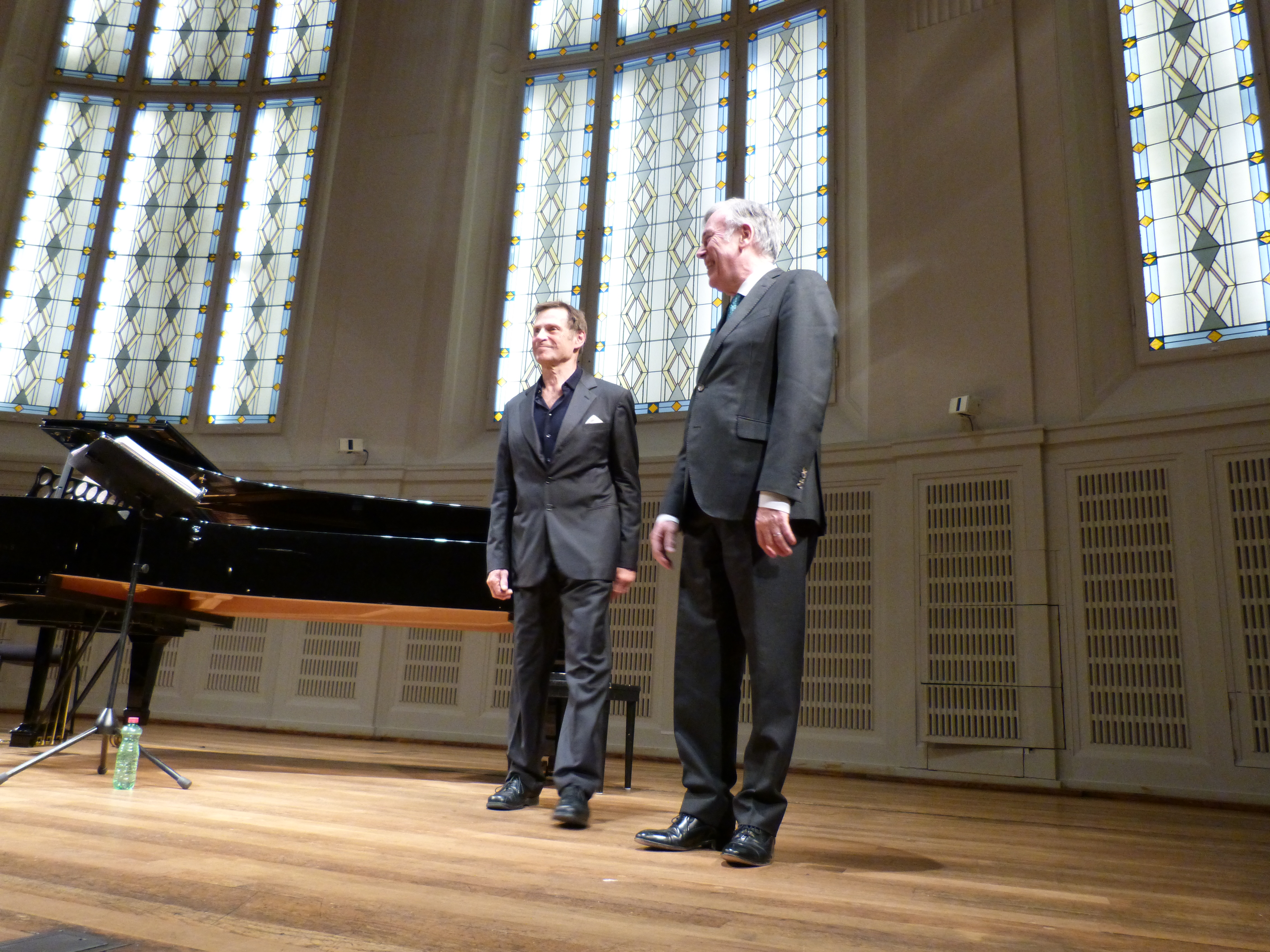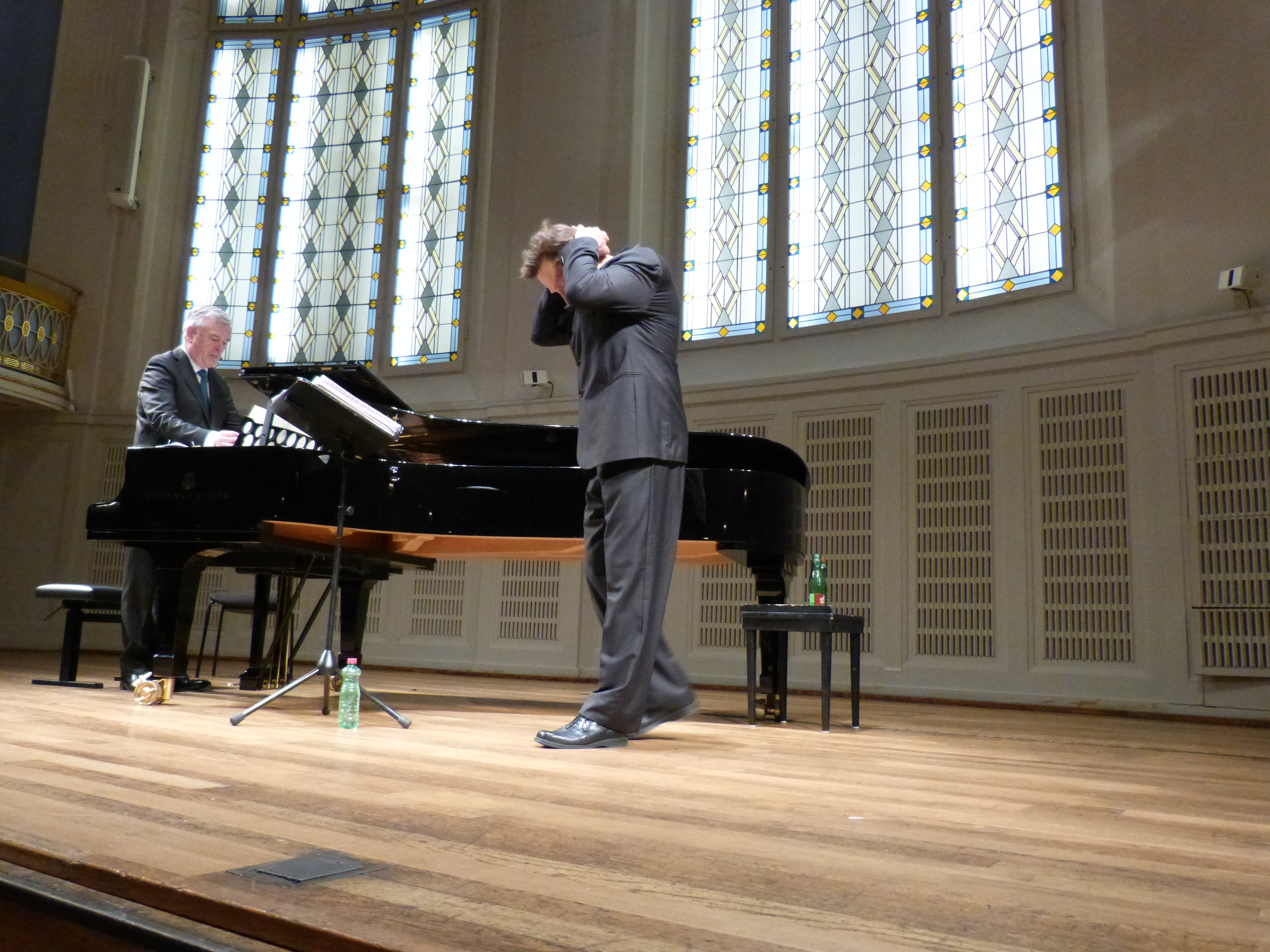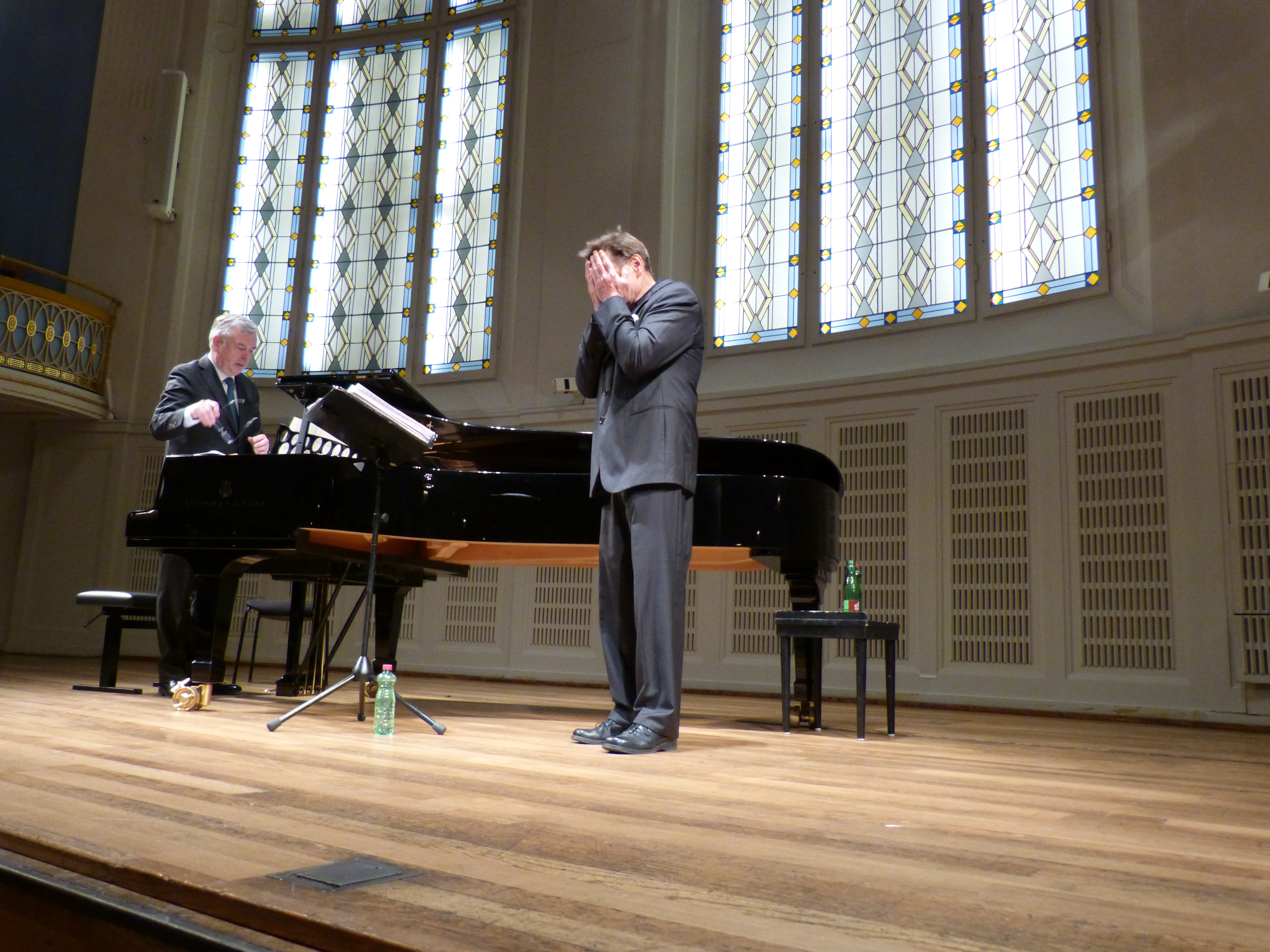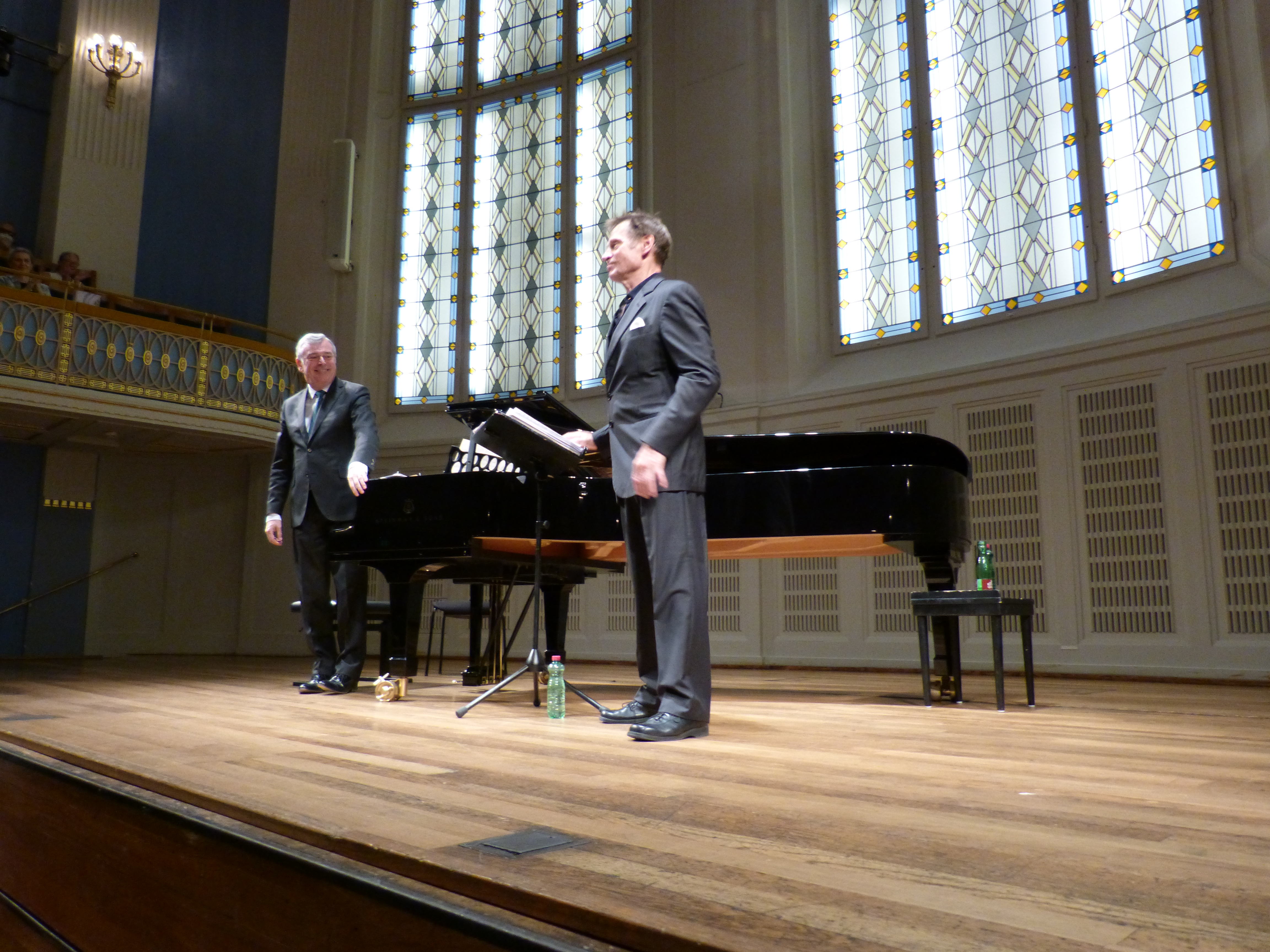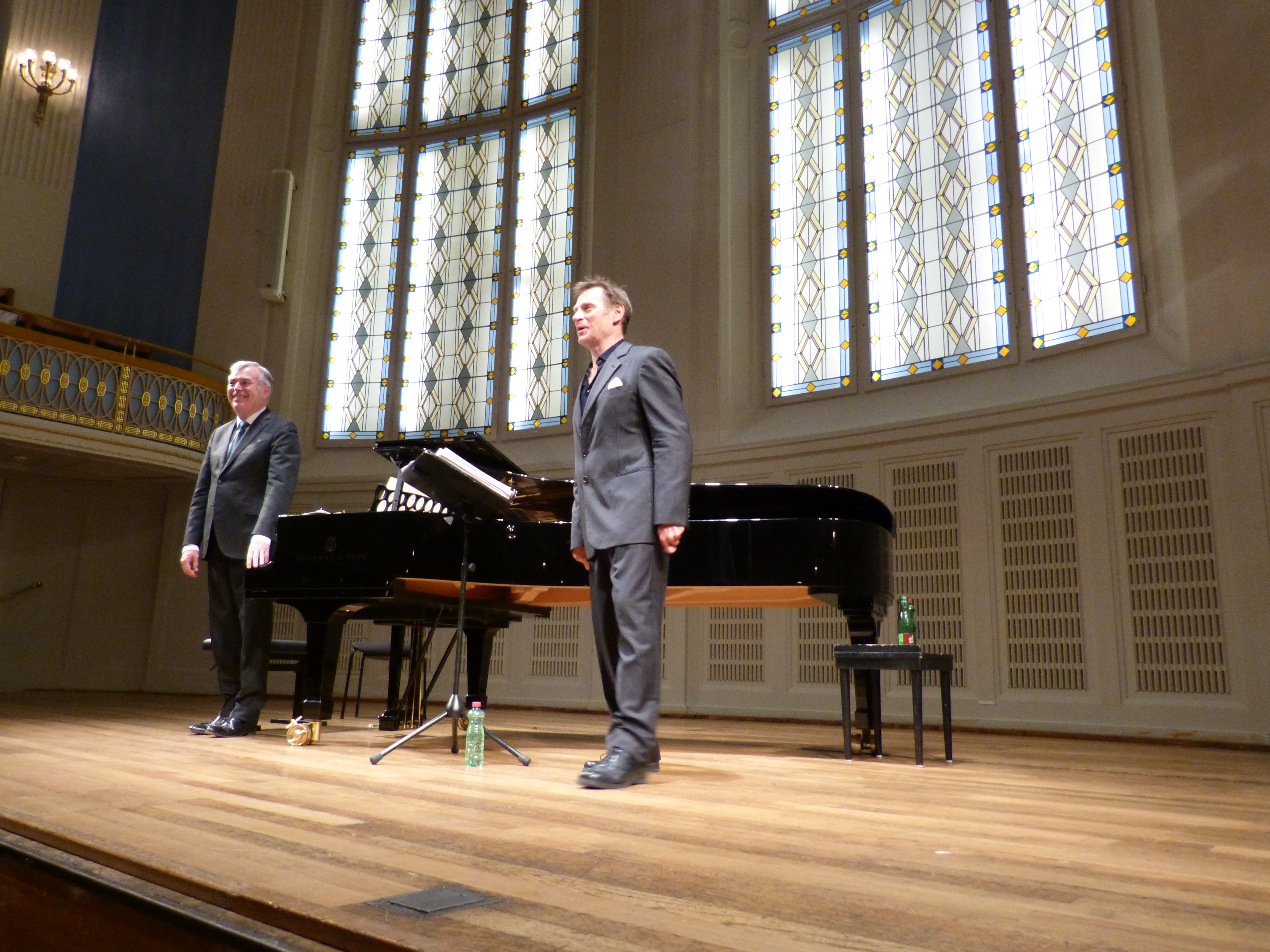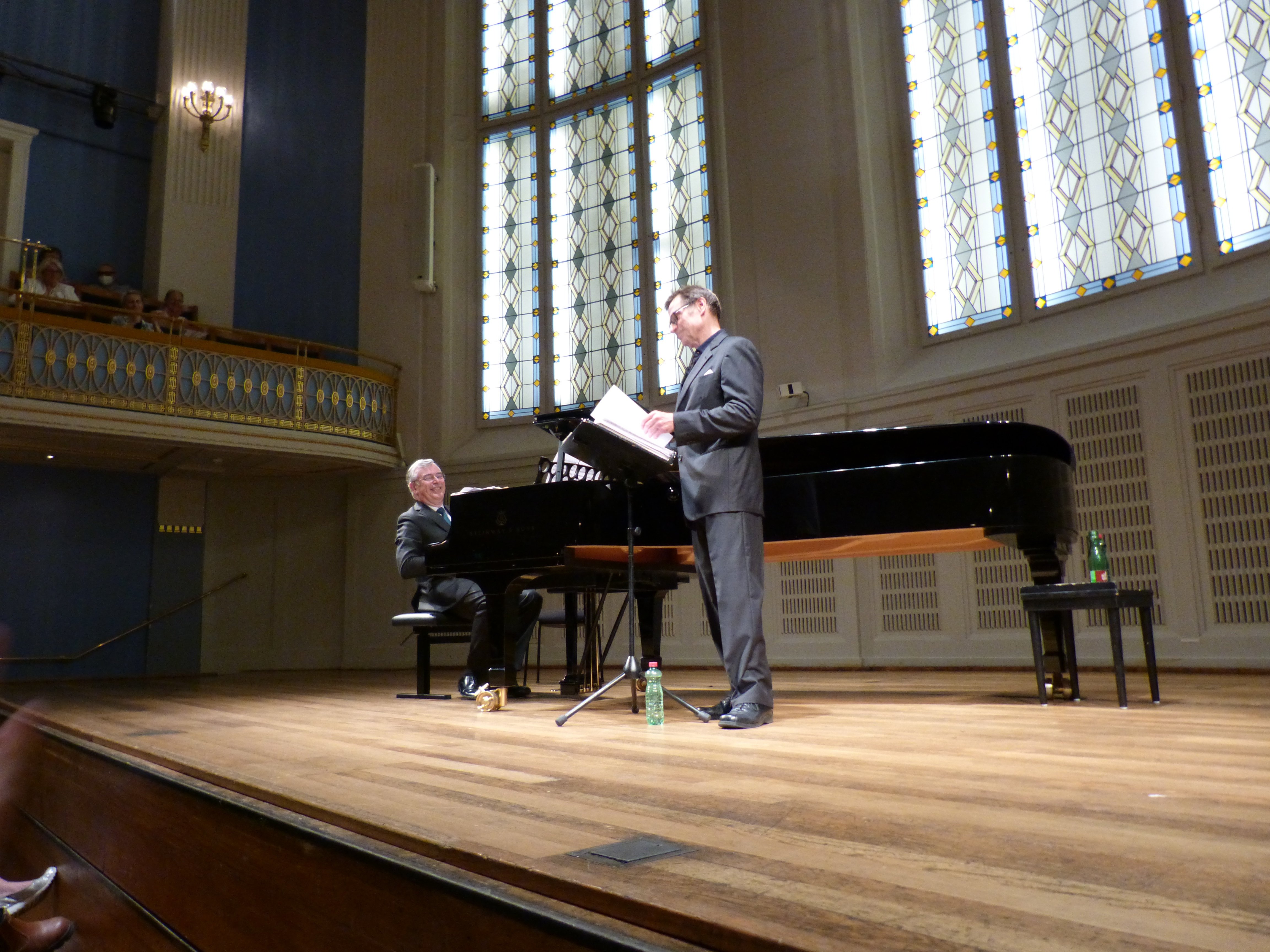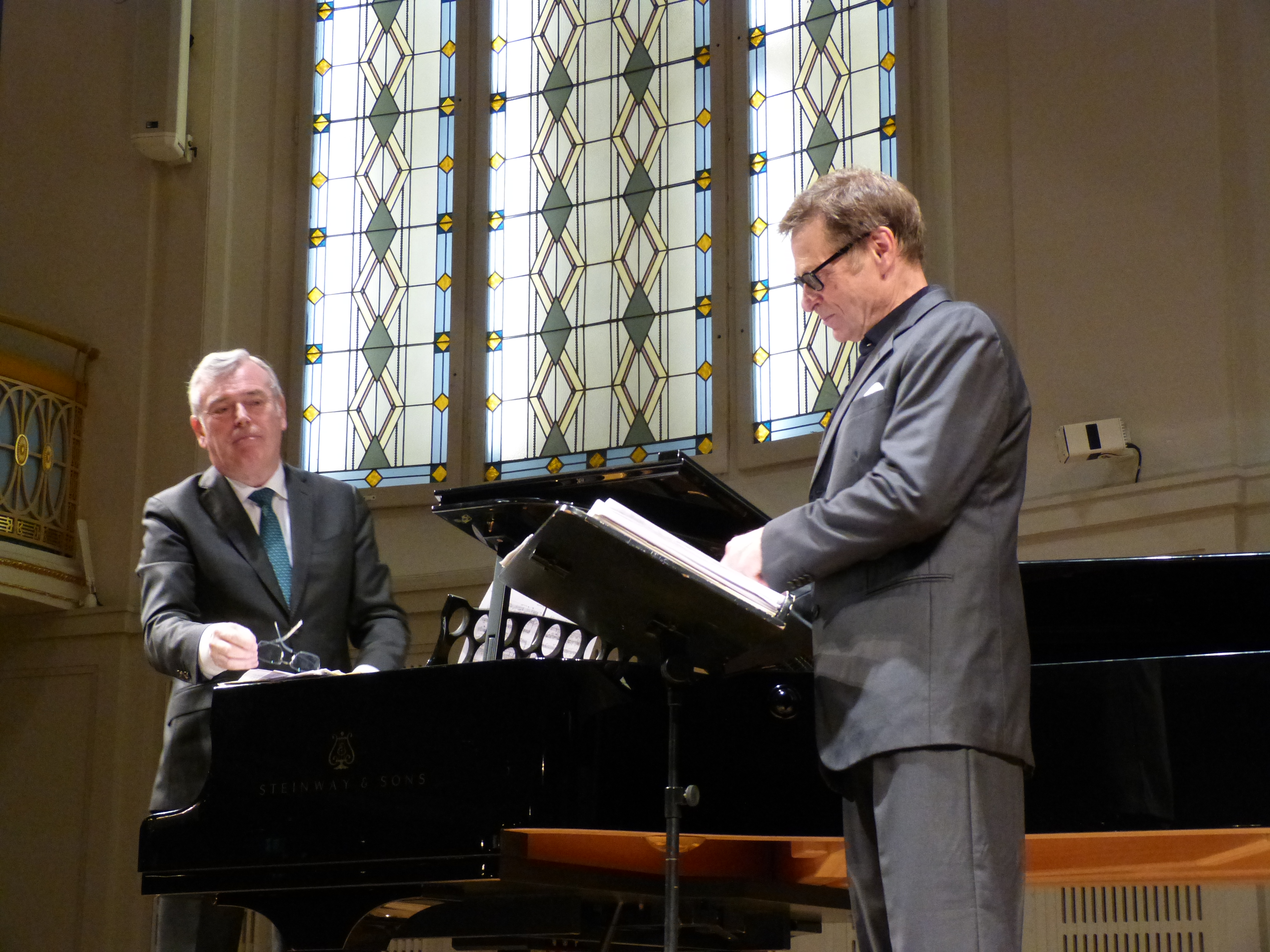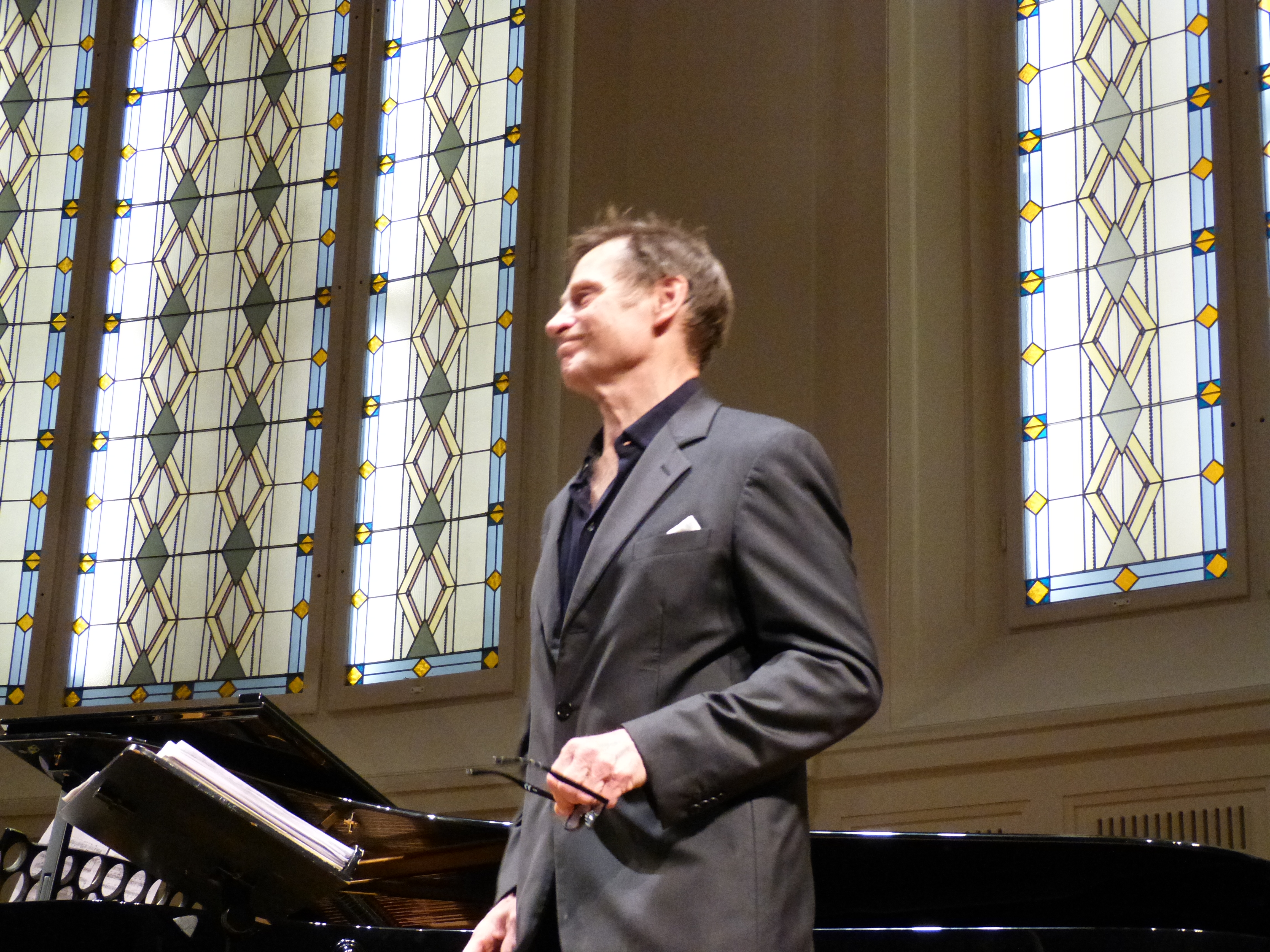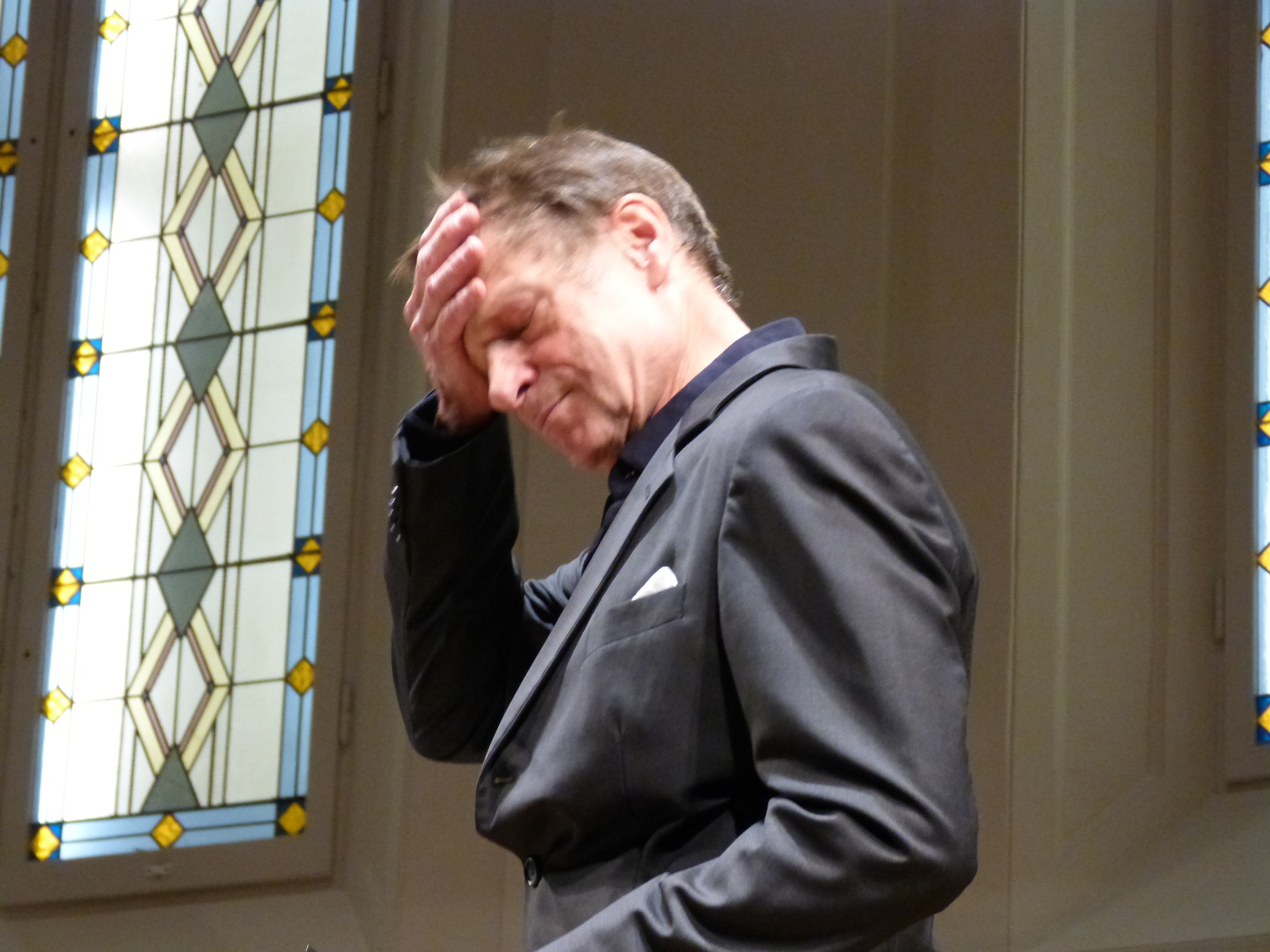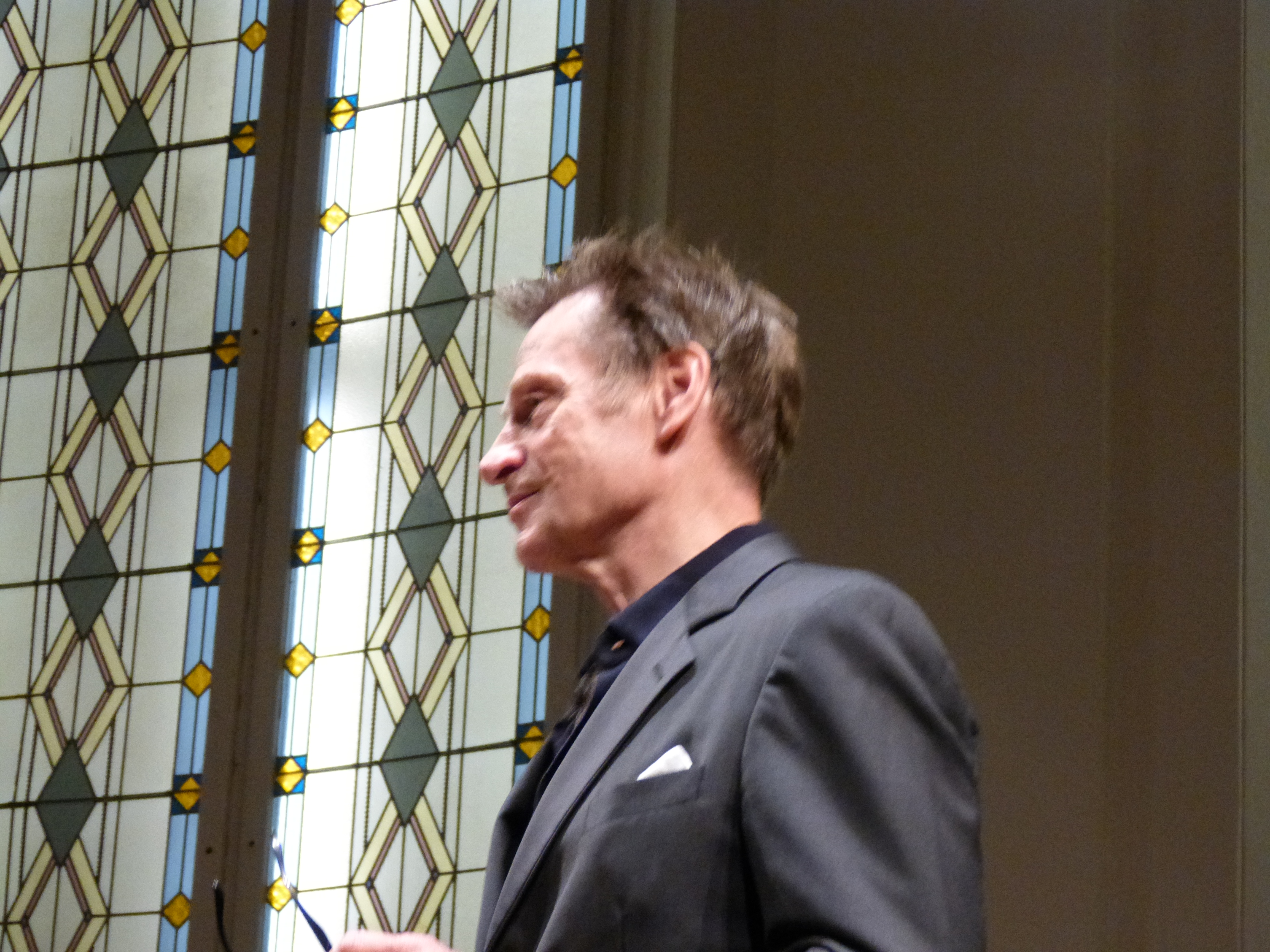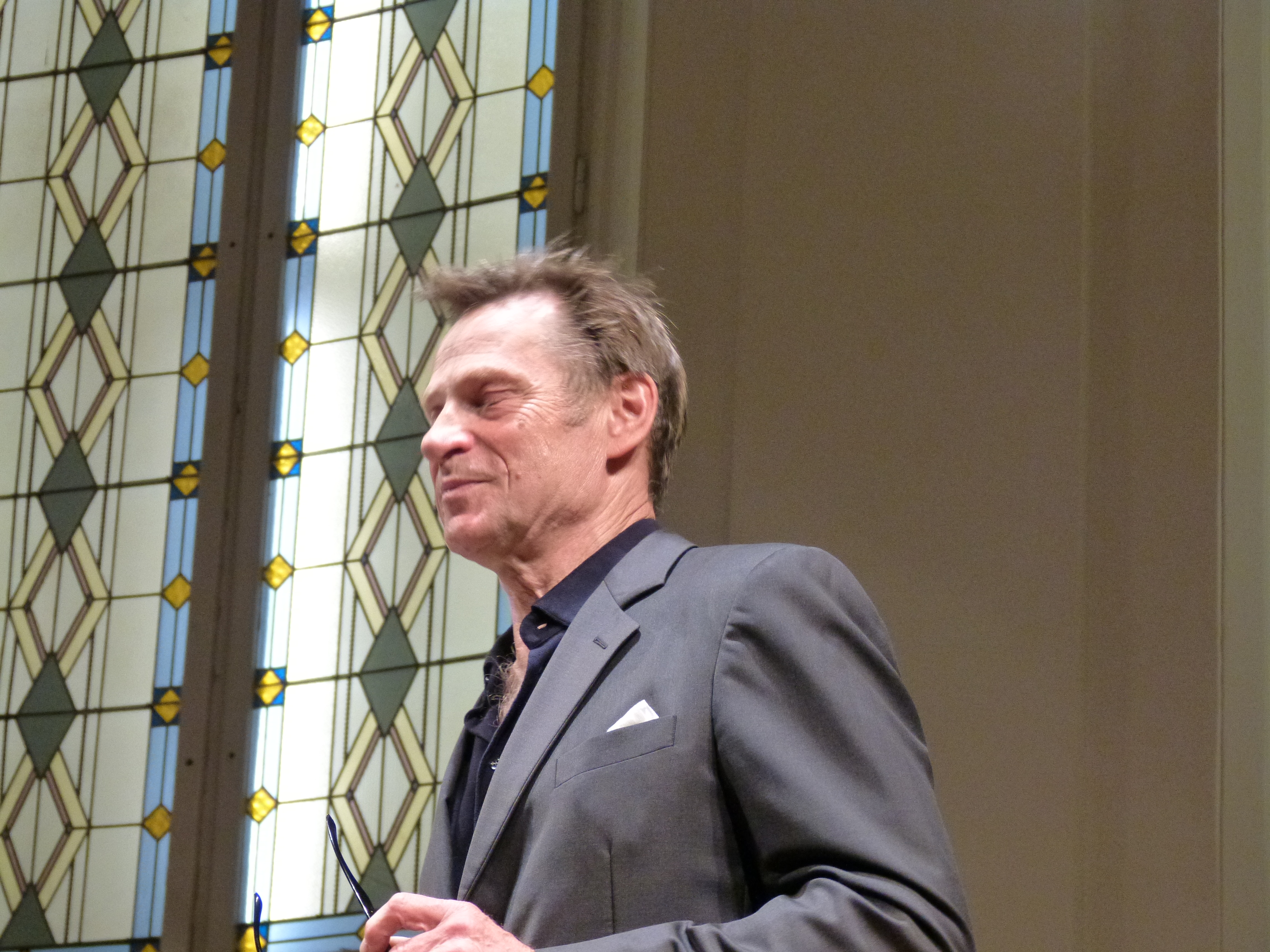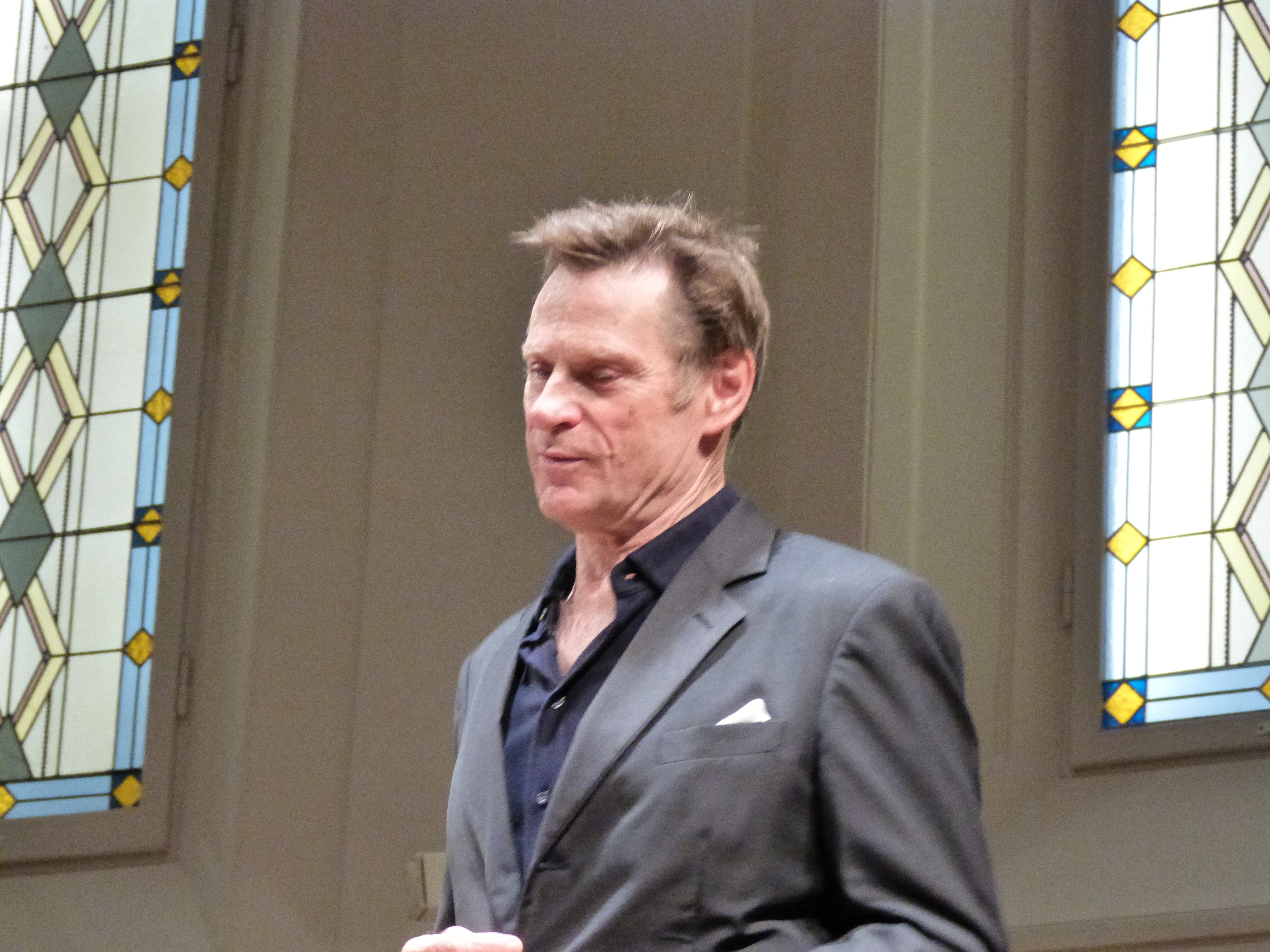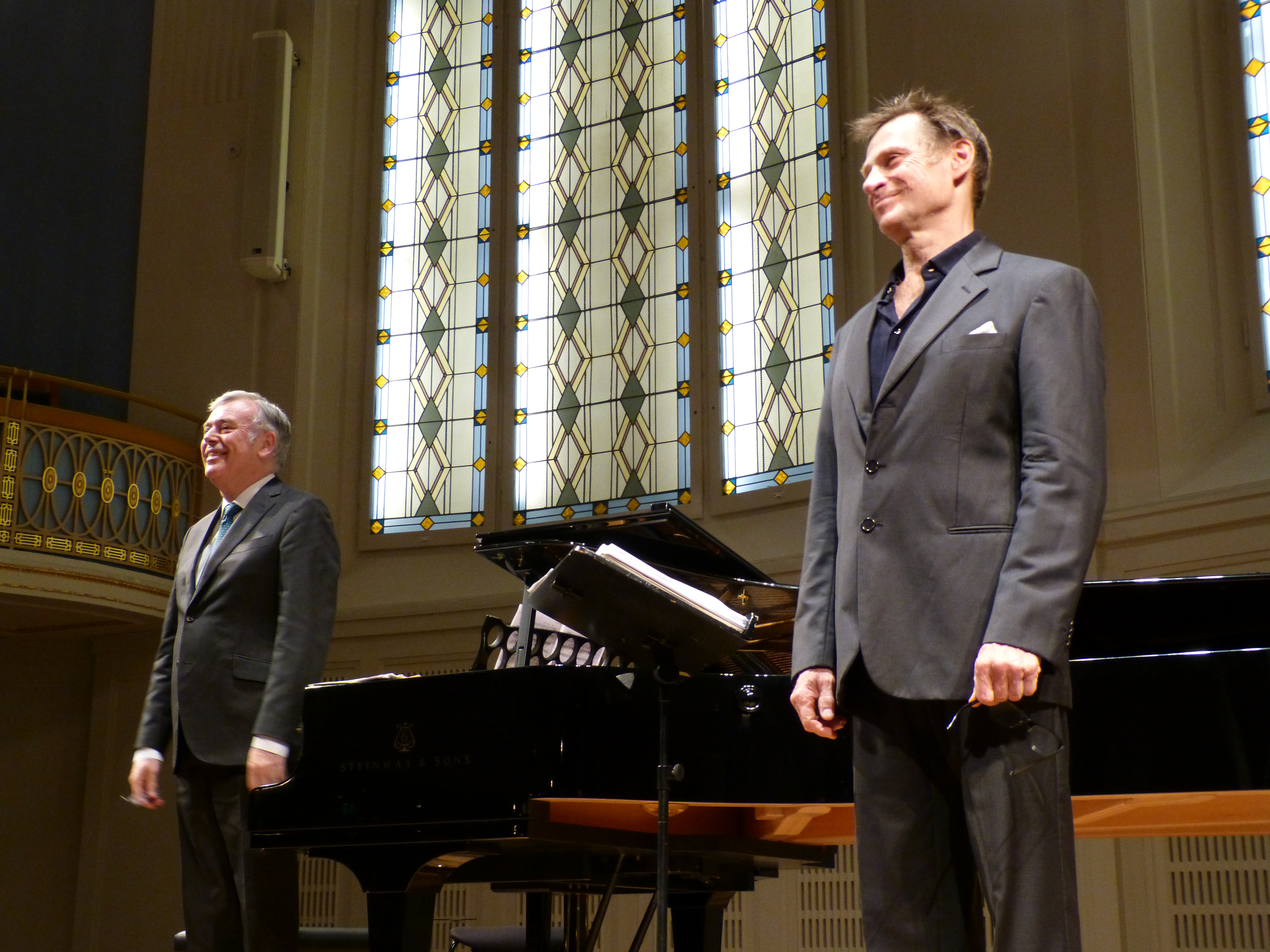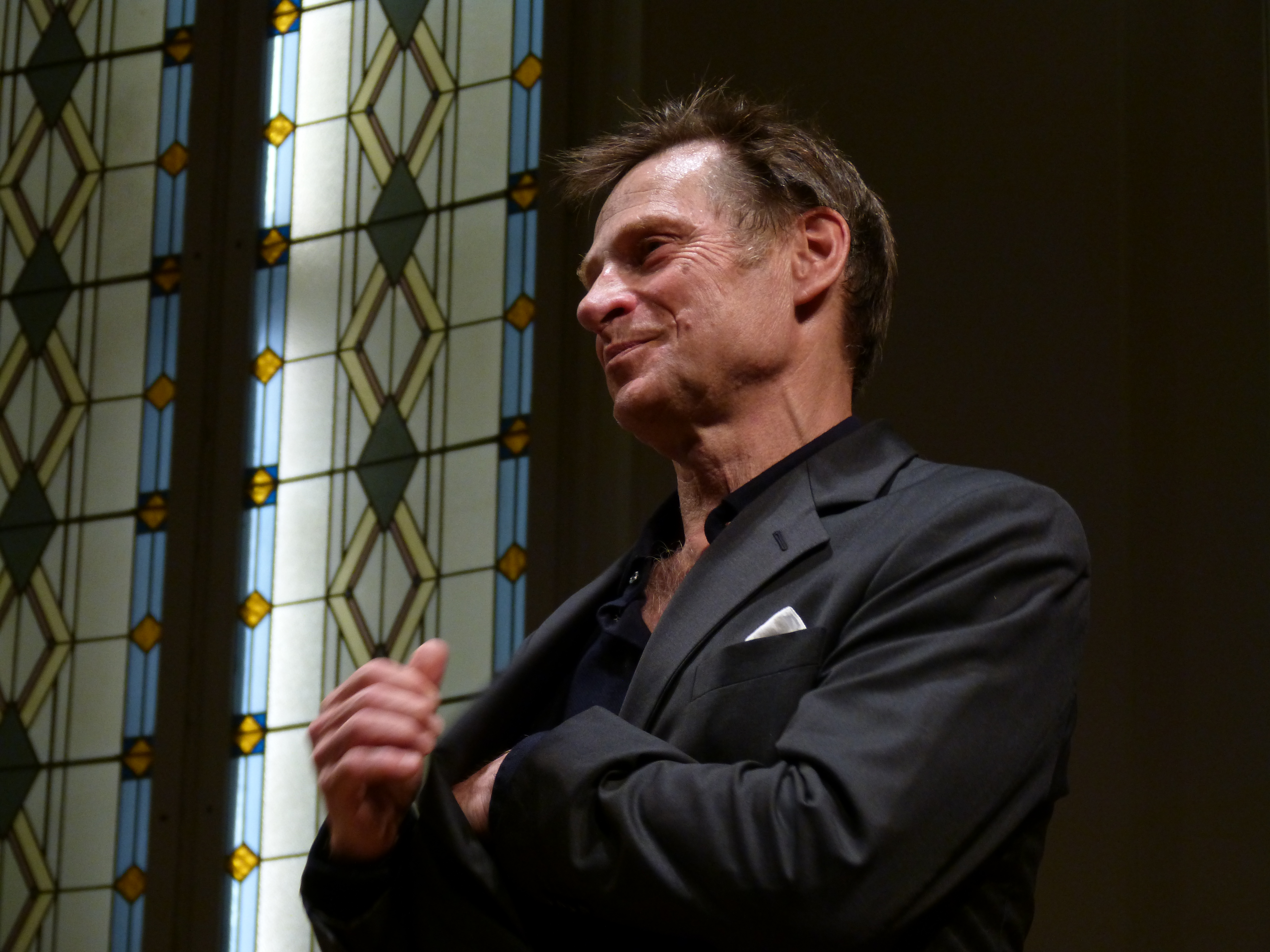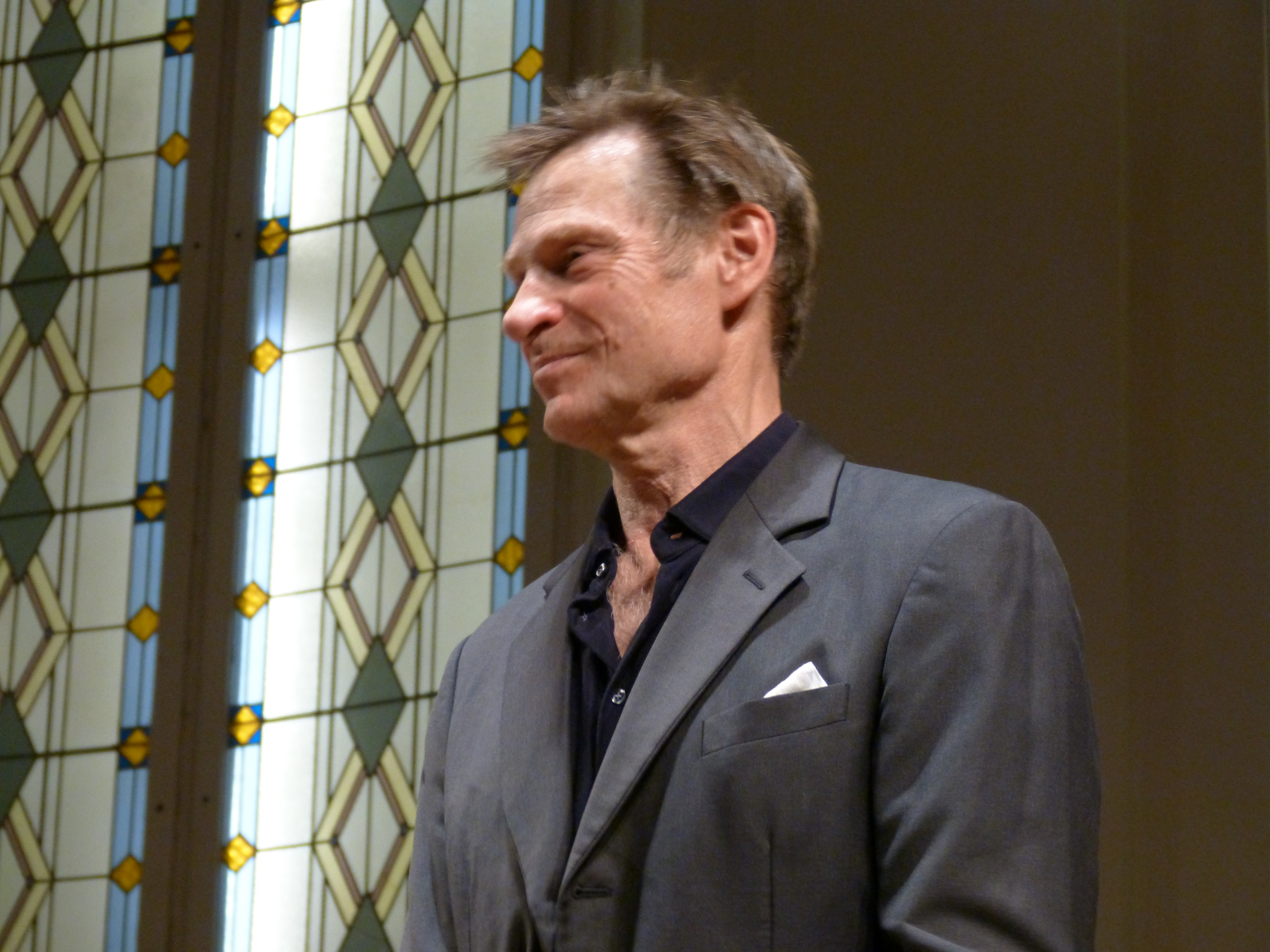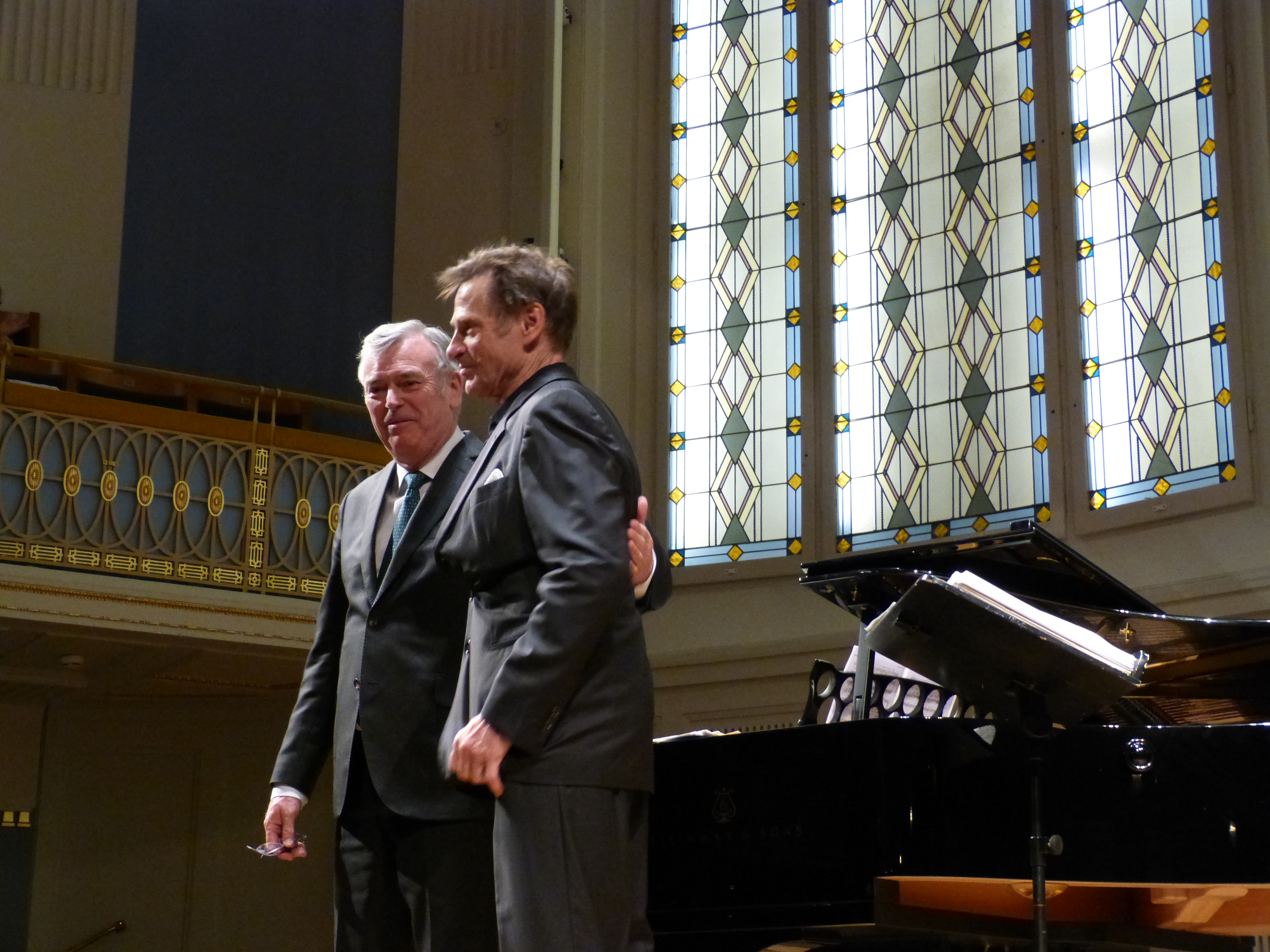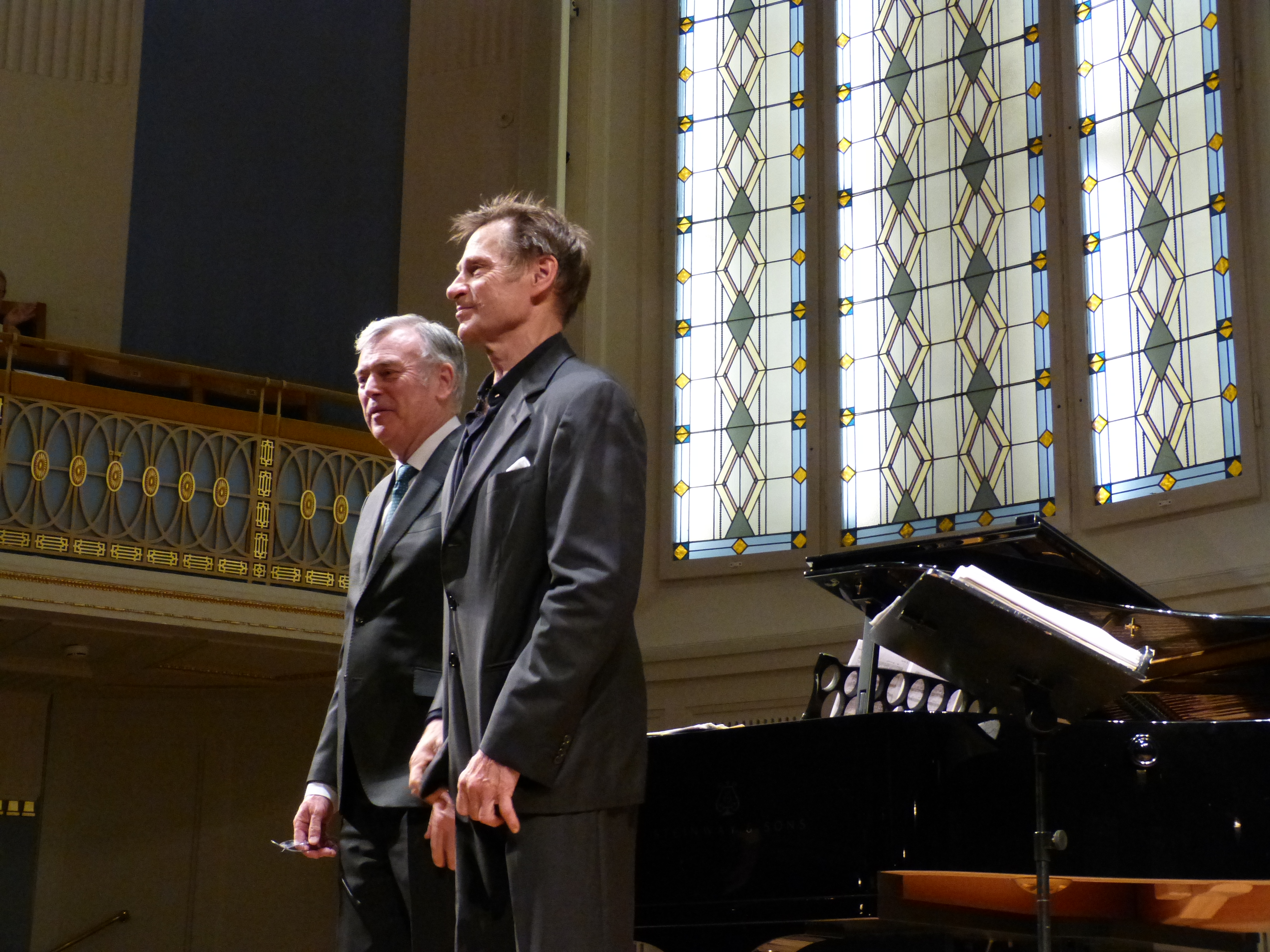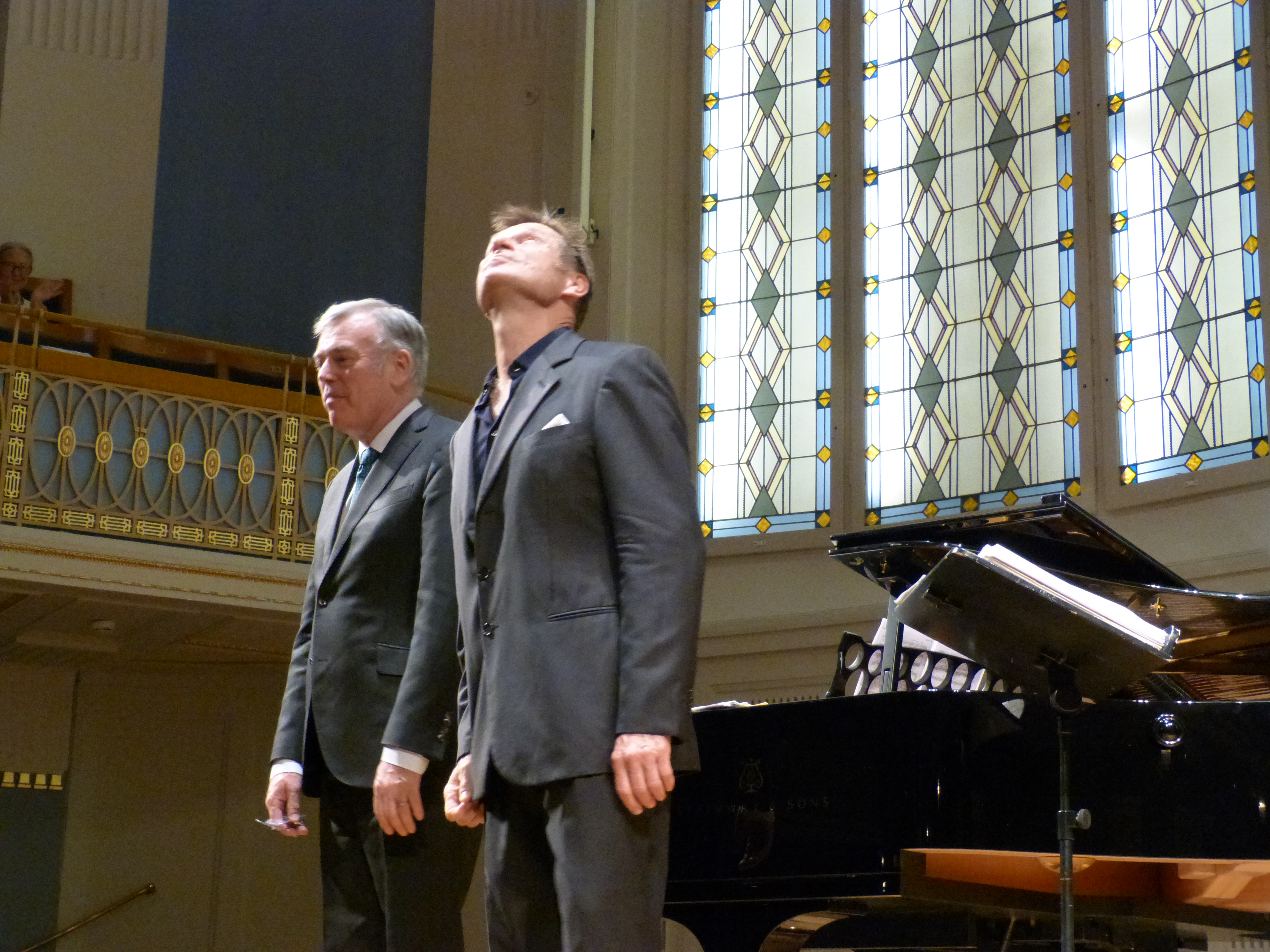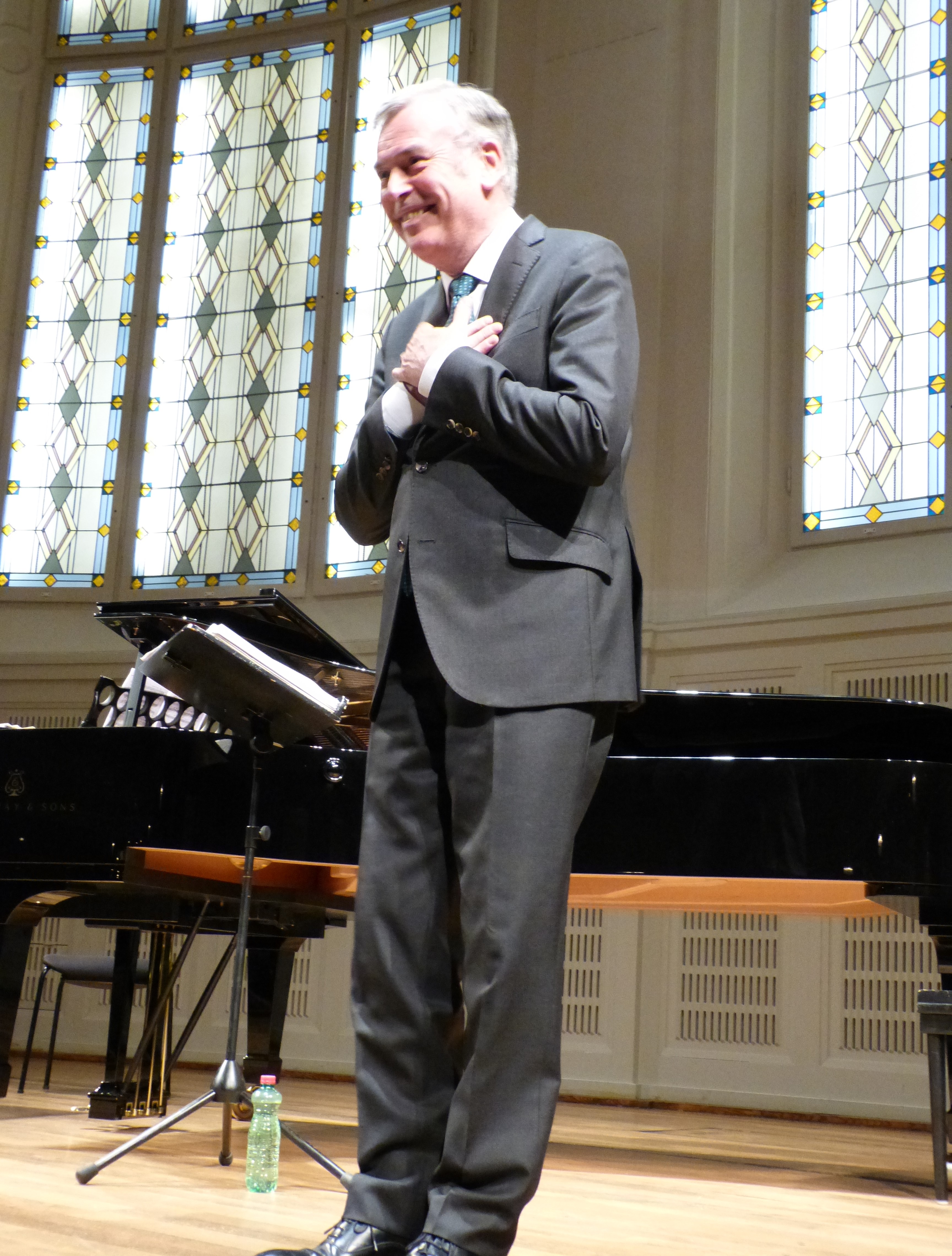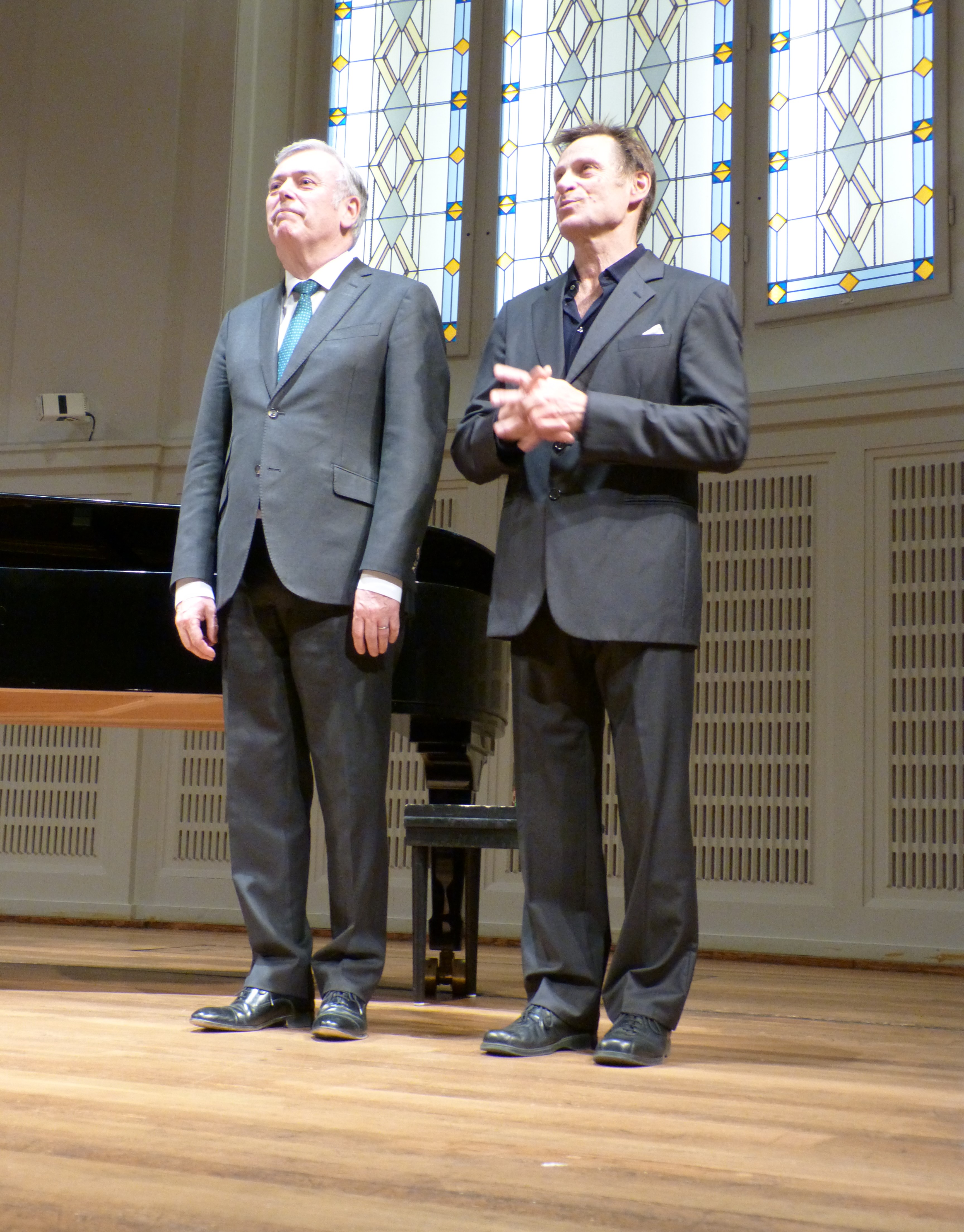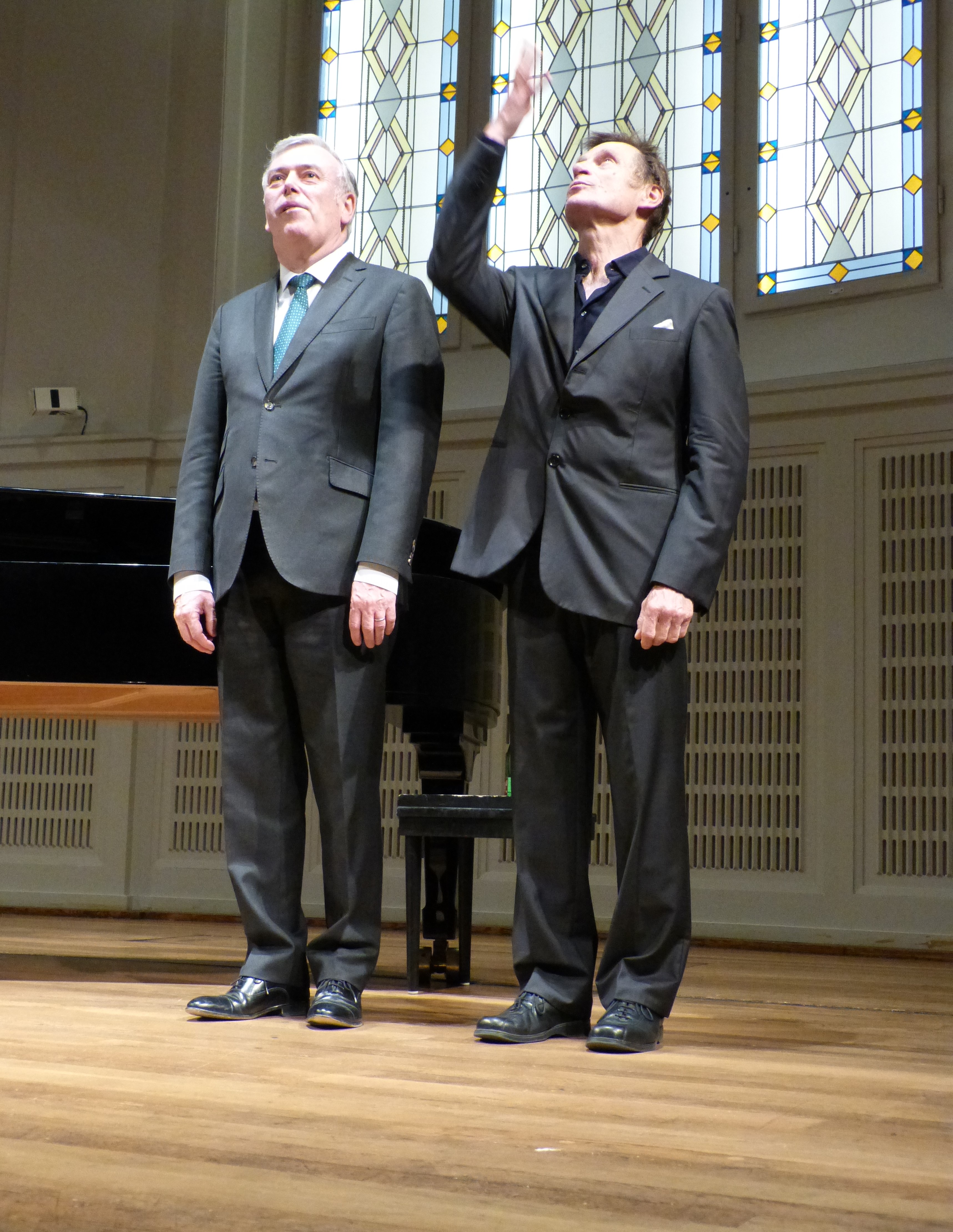Mozart Saal, Konzerthaus, Vienna
|
23 May 2022 |
7:30 pm
7:30 pm
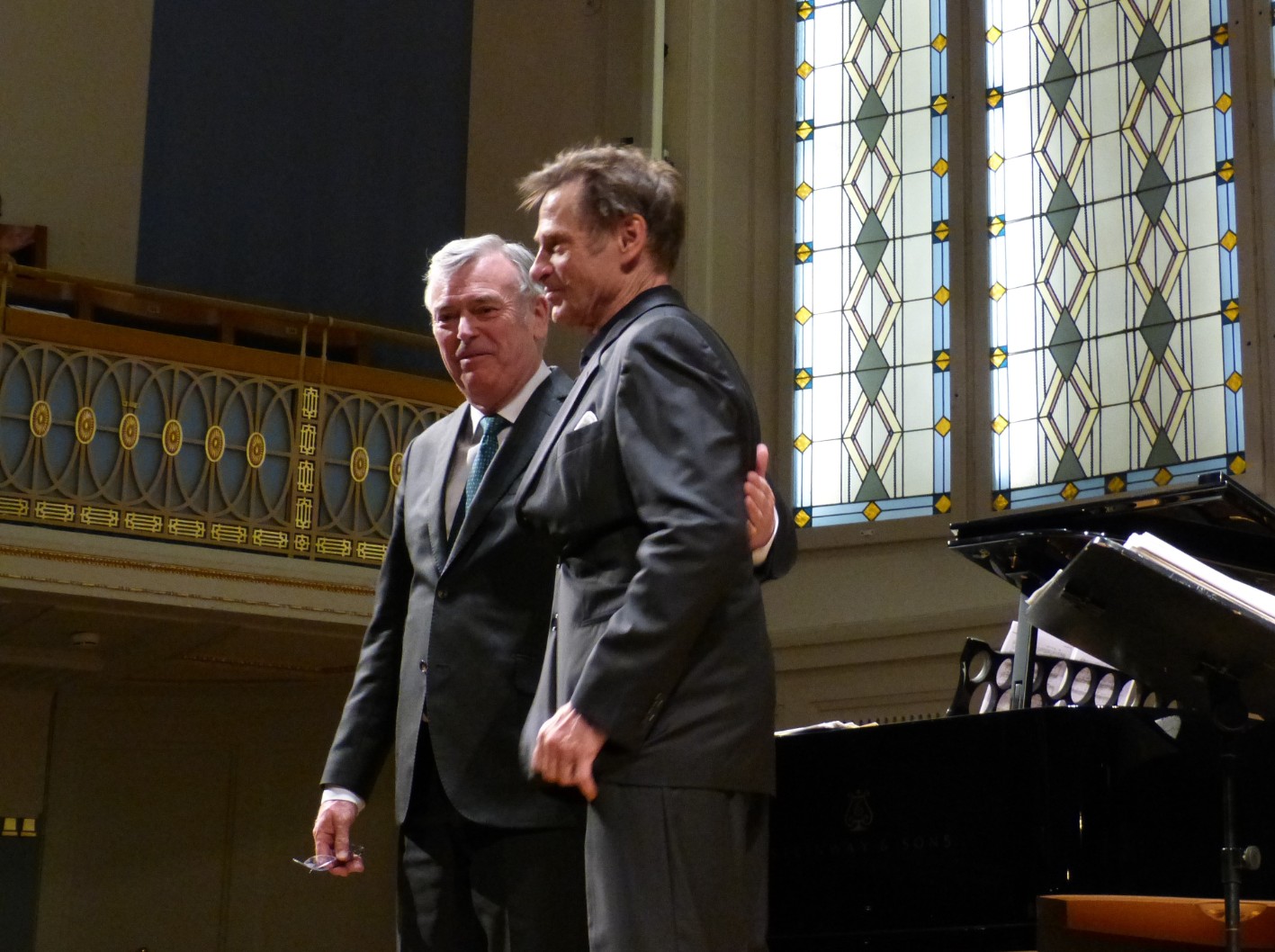
POSTPONED FROM 29 MARCH
Simon Keenlyside : baritone
Malcolm Martineau : piano
Programme
Henry Purcell
Let the dreadful engines
Gerald Raphael Finzi
O mistress mine op. 18/4 (Let us garlands bring)
Ralph Vaughan Williams
Love bade me welcome (Five mystical songs Nr. 3) (1906–1911)
The call (Five mystical songs Nr. 4) (1911)
Antiphon (Five mystical songs Nr. 5) (1906–1911)
Gabriel Fauré
Madrigal de Shylock op. 57/2 (1889)
Aubade op. 6/1 (1873 ca.)
Green op. 58/3 (Cinq mélodies de Venise) (1891)
Le secret op. 23/3 (1880–1881)
Maurice Ravel
Chanson romantique (Don Quichotte à Dulcinée Nr. 1) (1932–1933)
Chanson épique (Don Quichotte à Dulcinée Nr. 2) (1932–1933)
Chanson à boire (Don Quichotte à Dulcinée Nr. 3) (1932–1933)
***
Richard Strauss
Hymnus op. 33/3 (1896)
Sehnsucht op. 32/2 (1896)
Wasserrose op. 22/4 (Mädchenblumen) (1886–1888)
Des Dichters Abendgang op. 47/2 (1900)
Franz Schubert
Verklärung D 59 »Lebensfunke, vom Himmel entglüht« (1813)
Auf der Donau D 553 (1817)
Geheimes D 719 (1821)
Blondel zu Marien D 626 (1818)
Im Walde D 708 »Waldesnacht« (1820)
Encores
Richard Strauss - Traum durch die Dämmerung
Francis Poulenc - Carte Postale
Franz Schubert - Im Abendrot
SOUNDBITES
We have been given permission by the publisher to add a short summary of this review, with quotes, to our website. Our thanks to Die Presse for allowing us to do this.
Theresa Steininger stellt ihre Kritik des Liederabends in “Die Presse” unter die Überschrift „Betrunken mit Ravel, verzweifelt mit Purcell; Bariton Simon Keenlyside in einem umjubelten Konzerthaus-Abend“.
Den ersten Teil des Abends betreffend hebt sie besonders die Fähigkeit Simon Keenlysides hervor, durch stimmliche Akzentuierung auch in sehr kurzen Phrasen eine emotionale Situation oder Stimmung zu beschreiben, z.B. im ersten Lied des Programms (Purcell: „Let the dreadful engines of eternal will“): „...Und wenn er am Schluss des ersten Songs 'Good Night' wünschte, einmal arios, einmal herb und knapp, so schnürte es manch einem Zuhörer die Kehle zu: Denn jäh verstand man, dass Cardenio (der Protagonist des Liedes) für immer Abschied von der Welt nimmt.“
Für den französischen Teil des Programms konstatiert die Autorin „...Ein Schwanken zwischen arioser Leichtigkeit und Tiefgang ...“.
Die Lieder von Strauss und Schubert nach der Pause waren durch gute Artikulation, innige Interpretation und „schwelgerisch-lyrischen Glanz“ geprägt. „Generell tut es Keenlyside gut, sich in einer angenehmen Mittellage zu bewegen, wo ihm feinsinnige Differenzierung leicht fällt.“ Aber: „Wenngleich er bei mancher Höhe gefordert wirkte, lagen ihm diese in 'Des Dichters Abendgang'.“ (Strauss).
Theresa Steininger gives her review in “Die Presse” the heading “Drunk with Ravel, desperate with Purcell; baritone Simon Keenlyside in a highly acclaimed evening at the Konzerthaus.”
As for the first part of the evening, she particularly emphasizes Simon Keenlyside’s ability to describe an emotional situation or mood by means of vocal accentuation, even in very short phrases, e.g. in the first song of the programme (Purcell: “Let the dreadful engines of eternal will”): “... And when at the end of the first song he sang ’Good Night', first melodically, then harshly and tersely, many a listener felt a lump in their throat, because suddenly they understood that Cardenio (the protagonist of the song) is saying goodbye to the world forever. ”
For the French part of the programme, the author states “... a vacillation between melodic lightness and depth ...”
The songs by Strauss and Schubert after the interval were characterized by good articulation, heartfelt interpretation and “sumptuous lyrical brilliance. ”“Generally speaking, Keenlyside does well to move within a pleasant midrange, where subtle differentiation is easy for him. ” But:“Although he seemed challenged by some high notes, those in ’Des Dichters Abendgang'(Strauss) suited him well ….”
